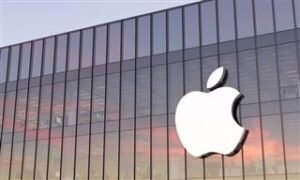In this article, we delve into the lawsuit against Apple over iPhone batteries, shedding light on the details and implications surrounding this legal battle. We aim to provide a comprehensive overview of the case, exploring its origins, the key issues, and what it means for Apple and its consumers.
The Genesis of the Lawsuit
The lawsuit against Apple began to gain traction in response to the company’s handling of iPhone battery performance. Apple faced allegations of deliberately slowing down older iPhone models through software updates without notifying its users. This led to concerns over planned obsolescence and a lack of transparency, ultimately triggering a wave of legal actions.
Key Allegations and Arguments
1. Performance Throttling
One of the central allegations in the lawsuit revolves around performance throttling. Apple was accused of intentionally slowing down older iPhones with aging batteries to extend their lifespan, but without obtaining explicit user consent. This move was seen as a means to encourage consumers to upgrade to newer iPhone models.
2. Lack of Transparency
A significant point of contention in the lawsuit was the lack of transparency on Apple’s part. Critics argued that Apple did not adequately inform its users about the performance throttling practices, leaving consumers unaware of why their older iPhones were becoming slower.
3. Battery Replacement Cost
Another critical aspect of the lawsuit was the cost of battery replacements. Apple’s official battery replacement service came at a price, which many users found to be unreasonably high. This raised questions about whether Apple was exploiting its users by not offering more affordable battery replacement options.
4. Consumer Impact
The lawsuit also delved into the impact on consumers. Many users felt compelled to purchase new iPhones due to their older devices’ decreased performance, leading to financial strains for individuals who might not have otherwise upgraded.
Apple’s Response
Apple responded to these allegations by acknowledging the performance throttling but asserting that it was done to prevent unexpected shutdowns resulting from degraded batteries. In response to public outrage and legal pressures, the company introduced an option for users to disable the performance throttling feature in later iOS updates.
Legal Developments
The lawsuit has had several legal twists and turns, with courts in different regions ruling on various aspects of the case. While some cases have been dismissed, others have proceeded, paving the way for a potentially lengthy legal battle for Apple.

Implications for Apple and Consumers
The lawsuit against Apple over iPhone batteries carries significant implications for both the tech giant and its customers.
Apple’s Reputation
Apple’s reputation as a company known for quality and customer-centric products has taken a hit due to this lawsuit. Transparency and consumer trust are essential factors in maintaining brand loyalty, and Apple has been forced to reckon with these issues.
Consumer Awareness
The lawsuit has increased consumer awareness regarding planned obsolescence and the need for transparency in tech companies. Users now expect more honesty and straightforward communication from the companies they invest in.
Potential Financial Ramifications
Depending on the outcomes of the various lawsuits, Apple may face financial penalties and compensation claims, which could impact its bottom line.
Conclusion
In this article, we’ve explored the lawsuit against Apple over iPhone batteries, covering the central allegations, Apple’s response, legal developments, and the implications for both the company and its consumers. As the case continues to evolve, it remains a subject of significant interest in the tech and legal worlds.
More on:
Concerns Arise from Pixel 8 Pro vs. iPhone 15 Pro Max Speed Test 2023

